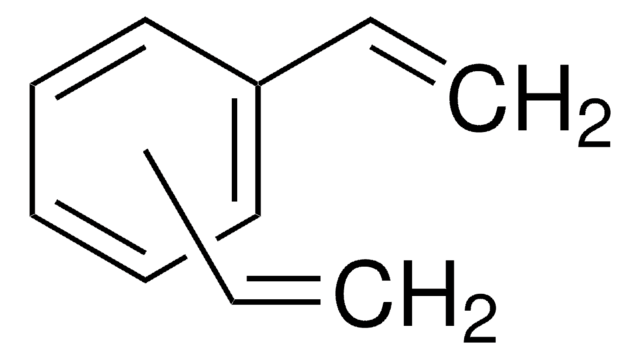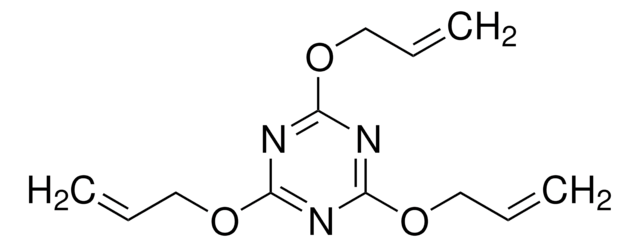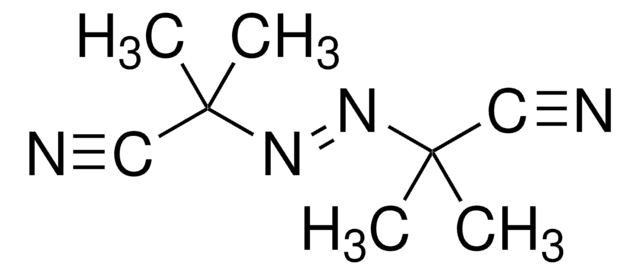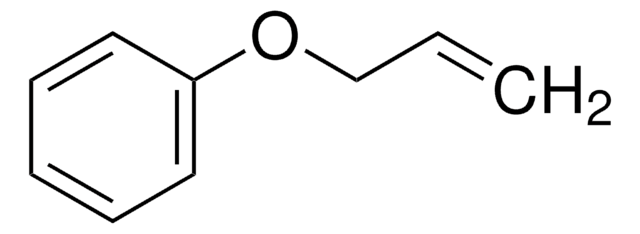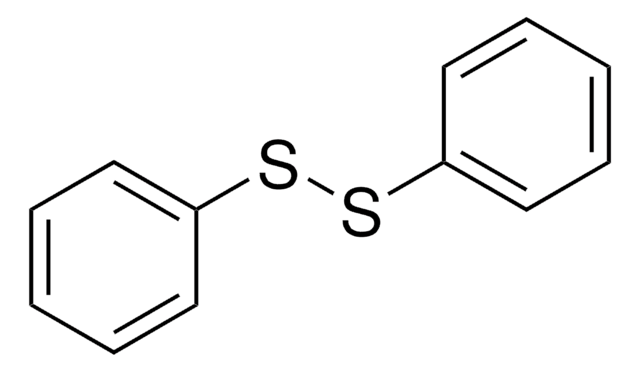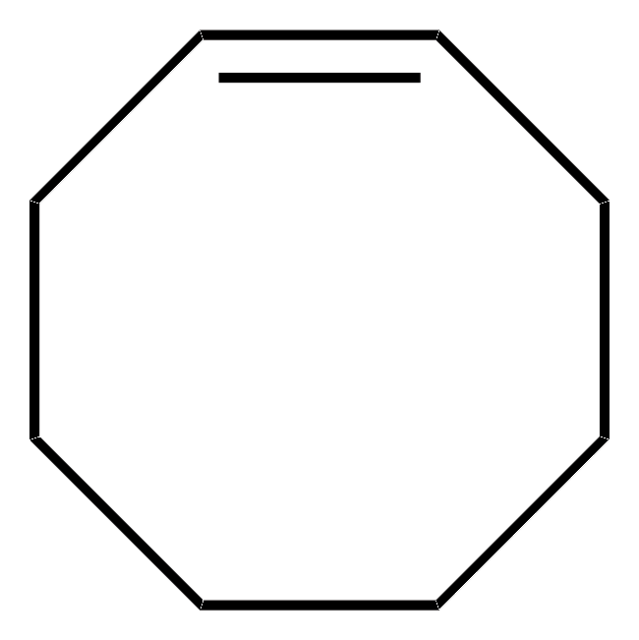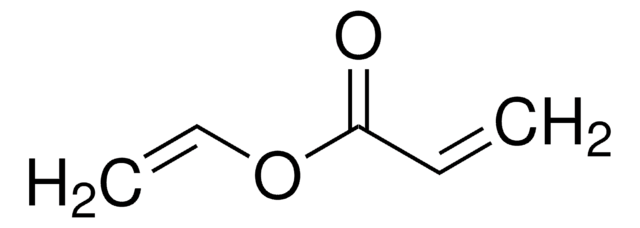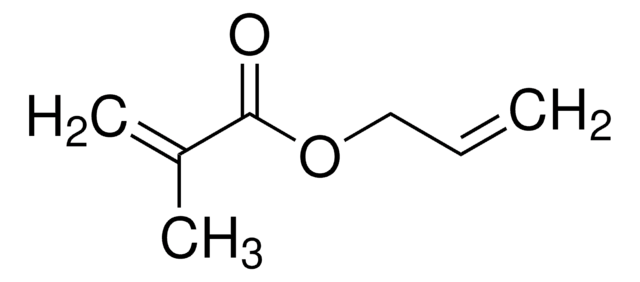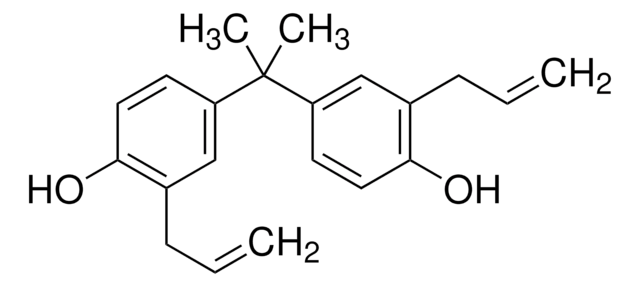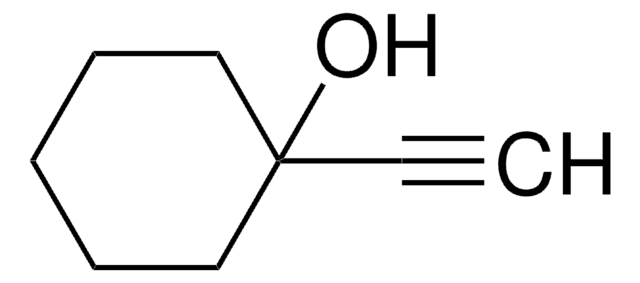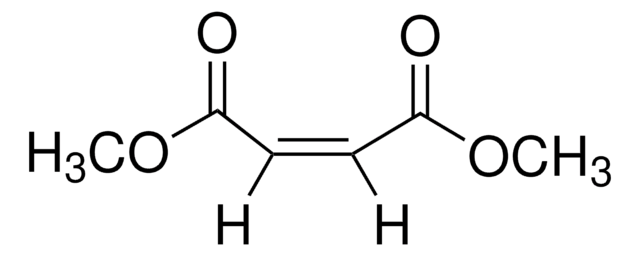291226
Diallyl maleate
technical grade, 93%
Synonym(s):
Maleic Acid Diallyl Ester
About This Item
Recommended Products
grade
technical grade
Quality Level
vapor density
6.6 (vs air)
vapor pressure
4 mmHg ( 25 °C)
Assay
93%
refractive index
n20/D 1.469 (lit.)
bp
106-116 °C/4 mmHg
mp
−47 °C (lit.)
density
1.074 g/mL at 20 °C (lit.)
storage temp.
2-8°C
SMILES string
C=CCOC(=O)\C=C/C(=O)OCC=C
InChI
1S/C10H12O4/c1-3-7-13-9(11)5-6-10(12)14-8-4-2/h3-6H,1-2,7-8H2/b6-5-
InChI key
ZPOLOEWJWXZUSP-WAYWQWQTSA-N
Looking for similar products? Visit Product Comparison Guide
Application
- Synthesis and Characterization of Allyl Terpene Maleate Monomer: This study presents a new synthesis route for allyl terpene maleate, differentiating its chemical structure from the typical terpene maleate, which can impact the production of fragrances and flavor industry (Hummel et al., 2019).
- Platinum-Catalyzed Hydrosilylation in Polymer Chemistry: The inhibitory properties of diallyl maleate in platinum-catalyzed reactions are explored, providing insights into the control of curing processes in polymer manufacturing (Lukin et al., 2020).
- Polyacrylate Decorating Poly (ethylene terephthalate) Film Surface: A new methyl methacrylate-methyl acrylate-diallyl maleate-maleic acid copolymer was synthesized to enhance the oxygen barrier properties of PET films, which is crucial for packaging applications (Zhong et al., 2021).
- Preparation and Characterization of DMAA-DAM Gel/Hydrogel: The study focuses on the preparation of a non-aqueous gel using N,N-Dimethyl acrylamide and Diallyl Maleate, aimed at targeted drug release in specific regions of the intestine (Bhuyan et al., 2023).
Signal Word
Danger
Hazard Statements
Precautionary Statements
Hazard Classifications
Acute Tox. 3 Oral - Acute Tox. 4 Dermal - Eye Irrit. 2 - Skin Irrit. 2 - STOT SE 3
Target Organs
Respiratory system
Storage Class Code
6.1C - Combustible acute toxic Cat.3 / toxic compounds or compounds which causing chronic effects
WGK
WGK 3
Flash Point(F)
249.8 °F - closed cup
Flash Point(C)
121 °C - closed cup
Personal Protective Equipment
Choose from one of the most recent versions:
Already Own This Product?
Find documentation for the products that you have recently purchased in the Document Library.
Customers Also Viewed
Our team of scientists has experience in all areas of research including Life Science, Material Science, Chemical Synthesis, Chromatography, Analytical and many others.
Contact Technical Service


